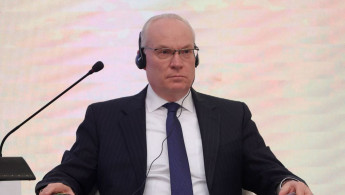Yemen: Houthi rebels should be more flexible over truce deal, says US envoy
US Special Envoy for Yemen Tim Lenderking on Wednesday called on the Houthi rebel group to show more flexibility over an extended and expanded truce deal proposed by the United Nations to build on a previous pact that expired on Sunday.
An initial truce first agreed in April had brought the longest stretch of relative calm in the seven-year-old conflict between a military coalition led by Saudi Arabia and the Iran-aligned Houthis. Both sides have been accused of grave violations by human rights groups.
Lenderking said in a news briefing that the Houthis, de facto authorities in northern Yemen, had "imposed maximalist and impossible demands" over a proposed mechanism to pay public sector wages, but that he was confident agreement could be reached if the group showed flexibility.
A member of the Houthi negotiating committee had in a Twitter post criticised the proposed payment scheme for not including members of police, security and military forces.
UN-led negotiations and US diplomacy "continue unabated", Lenderking said, adding that key elements of the initial truce were still holding – relatively low violence, fuel shipments to Hodeida port and continuity of commercial flights from the capital Sanaa, both held by the Houthis.
UN envoy Hans Grundberg had told Reuters the two sides failed to renew the truce because they were still far away on proposals to pay civil service wages, increase fuel shipments, add air flights and open roads.
"I'm confident... that we can get there if the Houthis move away from the very high demands that they have levied," Lenderking said.
In Taiz province, the Yemeni army announced on Sunday evening that it had thwarted Houthi infiltration efforts on three fronts near Taiz city, within hours of the truce ending 👇https://t.co/R2N5riWwvO
— The New Arab (@The_NewArab) October 5, 2022
He also criticised recent Houthi statements threatening commercial shipping and oil companies and said the United States would continue to help its Gulf Arab partners defend themselves.
The truce has seen a halt to major military operations between the warring sides in Yemen, including coalition airstrikes and Houthi cross-border drone and missile attacks on Saudi Arabia and the United Arab Emirates.
The Saudi-led coalition intervened in March 2015 after the Houthis ousted the internationally recognised government from Sanaa.
The conflict has killed tens of thousands, devastated Yemen's economy and pushed millions into hunger.
(Reuters)





 Follow the Middle East's top stories in English at The New Arab on Google News
Follow the Middle East's top stories in English at The New Arab on Google News


